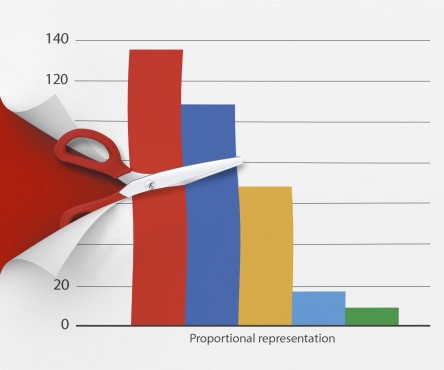In 2015, Justin Trudeau defied his detractors and skeptics as he led the Liberal Party from political underdog status to the top of Parliament Hill, winning a majority in the 42nd federal election. Campaigning on a message of “real change,” Trudeau not only took down Harper, but decimated the favoured runner-up, Thomas Mulcair and his New Democrats.
“Sunny ways my friends. Sunny ways,” Trudeau said to his supporters on the night of his victory. “This is what positive politics can do.”
It’s a message that resonated with many Canadians, and as the new government assumed power, they brought with them a laundry list of promises Canadians hoped the party would keep, one of those being implementing some type of voting reform. But as the year drew to a close, that sunny outlook was marred by some cloudy skies.
On Dec. 27, Liberal House Leader Dominic LeBlanc said that the Liberal Party was not planning on holding a referendum on any voting reform in the future, and will instead undertake broad “consultation” with Canadians by an all-party committee, with legislation being introduced within the next year and a half.
For those who were looking forward to real change, this may come as a disappointment. And why wouldn’t it? During the campaign, Trudeau offered a stark contrast to the totalitarian-esque ways of the Harper government. The hope was that a new government would bring new ways of doing things, but leaving the fate of our electoral system in the hands of a select few sounds awfully like “We’ve already decided what’s best, so just roll with it.”
VICE Canada’s Justin Ling wrote, “The only way to actually be able to say that the public was consulted is to give them a vote on it.” And it’s true. Voting is one of the most important ways, if not the most important, that citizens have a say in their government. Wouldn’t it make sense, then, to let citizens vote on how that system could — or even should — change?
But maybe, if the Liberals truly want to implement a different system, foregoing a referendum isn’t such a bad idea after all. History would be on their side, as such referendums typically support the status quo. B.C. voted in 2005 and 2009 to uphold the current system; perhaps a national vote would yield the same results.
That shouldn’t be cause for not holding a referendum, though. If it’s an issue of voter ignorance, well, that’s those putting the question forward. It’s their job to make sure constituents understand the issues as best they can. Trudeau should have faith in Canadians to make the right decision as they see it fit.
After all, Canadians put their faith in him to do the same.







